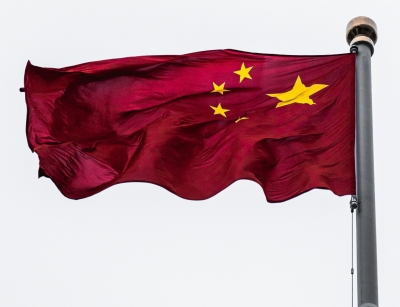Experts, whistleblowers, rights group term CCP's use of data as repression without borders: Report
By IANS | Updated: August 24, 2025 19:10 IST2025-08-24T19:04:26+5:302025-08-24T19:10:18+5:30
Stockholm, Aug 24 The Chinese Communist Party's (CCP) dependence on digital governance and data manipulation has transformed into ...

Experts, whistleblowers, rights group term CCP's use of data as repression without borders: Report
Stockholm, Aug 24 The Chinese Communist Party's (CCP) dependence on digital governance and data manipulation has transformed into a means of transnational repression, broadening its authoritarian influence well beyond its territory, a report has said. Experts, whistleblowers and human rights groups have termed the CCP's use of data as a form of "repression without borders".
What starts as the collection of data from ordinary people in China has transformed into a worldwide surveillance system, one that threatens dissidents, silences critics, and punishes people in China and abroad. A report in European Times said: "Experts, whistleblowers, and human rights groups increasingly describe the CCP’s use of data as a form of 'repression without borders'—an apparatus designed to enforce submission not just at home, but across the world."
Chen Ende, a former Chinese tech worker now living in the United States, shares how this system works internally. His work in major projects at Alibaba Cainiao Technology and Tianque Technology exposed him to the way user data was systematically gathered and manipulated. At Cainiao, Alibaba’s logistics arm, Chen was assigned the task of collecting user information, including purchase records, addresses, phone numbers, and recipient information and selling the data to express delivery companies.
The report said: "What startled him most was not the collection itself, but the fact that CCP authorities could readily access all of this information through Party committees embedded within private companies. This arrangement, in which businesses masquerade as independent entities while answering directly to Party directives, makes every major Chinese technology firm a proxy for state surveillance. The lines between corporate operations and state control do not exist. Data, whether from e-commerce transactions or digital platforms, is ultimately filtered upward into the CCP’s machinery."
Chen joined Tianque Technology in 2019, and there he saw how a private firm was used for building the digital infrastructure of repression. "The company provided services for Zhejiang’s grid management system, which divides communities into micro-units to monitor residents. This network can flag 'unusual behaviour' in real time, effectively deputising technology to enforce political conformity. According to Chen, dissidents, critics and any individual deviating from approved practices are tracked immediately," the report said.
The Covid-19 pandemic showcased how the CCP manipulates data to control populations. Chen's team worked on Alibaba's health code system, which regulated the movement of people during the crisis. Officially promoted as a public health measure, the system was riddled with manipulation. Chen and his colleagues found irregularities between infection data and the figures shared with the public.
The European Times report said: "The CCP’s underreporting of cases and deaths was not simply a bureaucratic error - it was a deliberate political choice, one that concealed the magnitude of the disaster while tightening social controls. The health code system effectively transformed daily life into a series of algorithmic permissions. People were confined not by police barricades but by the colour of a QR code. Green meant freedom of movement, yellow or red meant confinement. Chen recalled how the policy led directly to tragedies: residents starved, medical treatment was denied, and deaths mounted—not from the virus, but from a system weaponised against its own people."
Experts termed the manipulation of data not just an aberration but a core feature of CCP governance. Official statistics, ranging from GDP growth to industrial output, are revealed as per the narrative of the party, leaving international markets to function on distorted numbers.
Chinese platforms like WeChat, QQ and Alipay are part of this manipulation. Mandated by the government, the real-name registration systems of these platforms ensure that the activity of the user is detectable and reportable. Under the 2017 National Intelligence Law, Chinese firms are required to give any data demanded by authorities, which results in the state not only regulating platforms but effectively operating them as means of political surveillance, a report in European Times said.
The report said: "The CCP’s push for a digital yuan and digital ID marks another escalation. Since 2016, Beijing has promoted its digital wallet system; in July 2025, it officially launched a digital ID platform, already integrated with 67 applications, including WeChat, Taobao, and government services. Chen warns that once fully implemented, this system will eliminate even the semblance of autonomy."
The CCP does not use data in China only as exiled dissidents, human rights activists, and diaspora communities have also reported intimidation and harassment in other nations. After relocating to the US and joining the banned China Democratic Party in 2023, Chen said his family in China was threatened by police over his activism.
Disclaimer: This post has been auto-published from an agency feed without any modifications to the text and has not been reviewed by an editor
Open in app